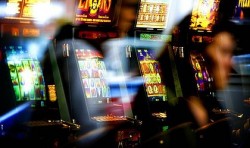Gambling Addiction Symptoms to Look Out For
Gambling has taken on a whole new face with the advent of the Internet, making the whole process more convenient and accessible to most anyone. As with drugs and alcohol, some people can walk away once they’ve had enough, while others become addicted to the “high” gambling can bring.
Gambling addiction can wreak just as much havoc in a person’s life as an alcohol or drug addiction. According to the Pennsylvania Department of Health, an estimated three percent of American adults will develop gambling addiction symptoms to the point where job loss, debt, family problems and problems with law become inevitable consequences.
While there’s no actual substance-based trigger to set off the addiction cycle, the “high” brought on by gambling can set off many of the same physiological effects as an addictive substance. As with any other type of addiction, gambling addiction symptoms appear in most every area of a person’s life.
Over time, gambling addiction symptoms start to compromise a gambler’s health, psychological well-being and overall lifestyle in general.
Gambling Addiction Effects

Neglecting responsibilities, relationships, and personal interests in favor of gambling is a sign of addiction.
While problem gamblers do seek out the eventual high brought on by gambling, gambling addictions have to do with the overall process or individual tasks and activities involved with gambling. For this reason, compulsive gambling is considered a process-based addiction.
According to the U. S. National Library of Medicine, people who engage in problem gambling behaviors suffer from a type of impulse-control disorder where he or she has lost the ability to stop or control the behavior.
The resulting “high” that accompanies gambling sets off many of the same brain chemical processes brought on by drug use. Gambling addiction symptoms start to surface once the feeling’s brought on by gambling become the center of a person’s world.
Physical and Behavioral Symptoms
Gambling addiction symptoms can impact most every area of a person’s life. As an overall obsession, addicts remain preoccupied with anything having to do with gambling, be it planning to go, obtaining needed monies or plotting “winning” strategies.
Eventually, this obsession starts to impair a person’s physical health and psychological well-being to the point where his or her lifestyle undergoes radical changes.
Gambling addiction symptoms to watch out for include:
- Changes in appetite
- Mood swings
- Neglecting close relationships
- Neglecting work responsibilities
- Risk-taking behaviors
- Disheveled appearance
- Disregard for personal hygiene
- Money problems
- Loss of interest in other activities
- A persistent “need” to gamble
- Problems sleeping
Without needed treatment help, gambling addiction symptoms become progressively worse the longer a person continues to engage in this pursuit.
Other Influences
As addiction in general naturally breeds risk-taking behavior, gambling addictions tend to develop alongside other types of addictions, especially those involving drugs and/or alcohol. While gambling and substance-based addictions tend to bring on the same types of symptoms, genuine gambling addiction symptoms will persist even when alcohol and/or drugs are absent.
If left untreated, a gambling addiction can potentially cause psychological disorders to develop as brain chemical imbalances worsen over time. At this point, a person may become even more enmeshed in his or her addiction in an effort to alleviate or avoid symptoms brought on by a psychological disorder.



